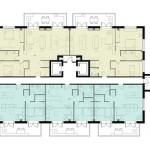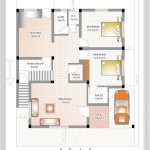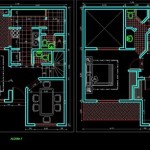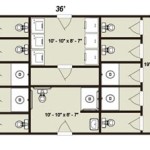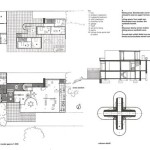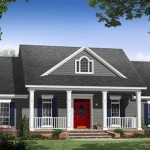Floor Plan Symbols: Deciphering the Blueprint Language
Floor plans are visual representations of a building's layout, providing a detailed overview of its spaces and features. Understanding the symbols used in these plans is crucial for interpreting their information effectively. Here's a guide to some essential symbols found on floor plans.
1. Walls and Openings
Walls are represented by solid or dashed lines. Solid lines indicate load-bearing walls, while dashed lines denote non-load-bearing walls. Openings such as doors and windows are shown by smaller rectangles or lines within the walls. The direction of door swings is indicated by an arrow or arc.
2. Doors and Windows
Doors are typically shown as rectangles or arcs on walls. The type of door (e.g., sliding, French) can be identified by its shape or label. Windows are represented by rectangles with lines indicating the number and placement of panes. Skylights and patio doors have specific symbols to distinguish them from regular windows.
3. Stairs and Elevators
Stairs are represented by a series of rectangles or triangles connected by lines, indicating the direction and number of steps. Elevators are shown as small rectangles with crossed lines inside. Ramps are depicted as inclined lines connecting two levels.
4. Fixtures and Appliances
Various fixtures and appliances are represented by symbols to indicate their location and function. Toilets and sinks are shown as circles or ovals, showers as semicircles, and bathtubs as rectangles with curved ends. Kitchen appliances such as refrigerators, stoves, and ovens have specific symbols that resemble their shapes.
5. Furniture and Room Designations
Furniture is typically shown as outlines of sofas, chairs, beds, and tables. The scale and orientation of furniture can provide an idea of the room's dimensions and layout. Room designations are often written in text or abbreviated formats (e.g., "LR" for living room, "BR" for bedroom).
6. MEP Systems
Mechanical, electrical, and plumbing (MEP) systems are often represented by stylized symbols on floor plans. These symbols indicate the location and routing of pipes, ducts, wires, and other essential infrastructure.
7. Dimensions and Measurements
Accurate dimensions and measurements are essential for understanding the scale of a floor plan. They are typically provided as lines with numeric labels, indicating the length, width, or height of different spaces or elements.
8. Other Symbols
Other symbols on floor plans may include fire exits (green rectangles), emergency phones (red circles), or special features such as pools, decks, or fireplaces. The legend or key provided on the plan will define these symbols.
Understanding floor plan symbols is vital for architects, engineers, contractors, and even homeowners seeking to visualize and interpret building designs. By becoming familiar with these conventions, you can effectively communicate spatial relationships, identify key features, and make informed decisions based on floor plan information.

Floor Plan Symbols And Abbreviations To Read Plans Foyr

Floor Plan Symbols And Abbreviations To Read Plans Foyr

Floor Plan Symbols And Meanings Edrawmax

Floor Plan Symbols And Meanings Edrawmax

Floor Plan Symbols And Meanings Edrawmax

Floor Plan Symbols And Abbreviations To Read Plans Foyr

Blueprint The Meaning Of Symbols

Floor Plan Symbols And Meanings Edrawmax

Floor Plan Symbols And Abbreviations To Read Plans Foyr

How To Read Floor Plans With 100 Accuracy K Hovnanian Homes


